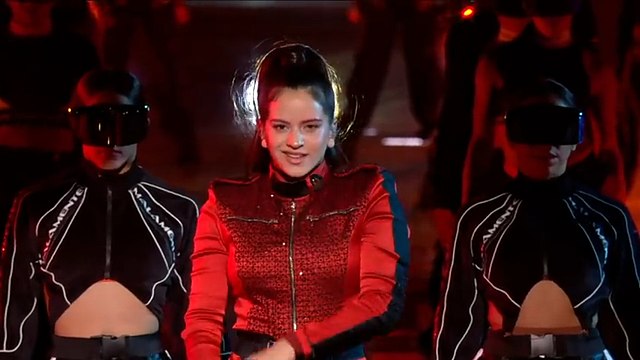Nowadays, even when a celebrity openly follows a specific culture, speaks a specific language, and has a regional name, people still try to avoid assuming their ethnicity.
Of course, this is a totally reasonable thing to do. After all, you can’t determine someone’s ethnic roots just by looking at superficial facets in their lives.

This may explain why some people are still confused with Rosalia’s true ethnic identity. If you’re one of those people, well, today’s your lucky day.
Join us as we take a closer look at Rosalia’s ethnic background.
Brief Summary of Rosalia’s Ethnic Roots
Rosalia has transcended boundaries with her music, and the same can be said with her ethnicity. According to reports, Rosalia has mixed ethnic heritage, which are as follows:
- Asturian
- Catalan
- Galician
- Andalusian
- Cuban
As you can see, Rosalia’s ethnic identity can be traced back to her distant ancestors. This only implies that her family has deep roots to their ethnic origins.
But what does all these have to do with whether or not Rosalia is Spanish? Well, four out of five of her aforementioned ethnic heritage are all native and aboriginal tribes of Spain. So, by blood, Rosalia is Spanish.

Her connection to Spain goes beyond that, though. Aside from it being her ethnic heritage, Spanish is also Rosalia’s nationality. This is because she was born in Barcelona, Spain, making her Spanish.
Is Rosalia Hispanic or Latina?
If we’re going to be politically correct, it’s important to know the difference between the terms Hispanic and Latin.
- Hispanic – This is used to describe people from Spanish-speaking countries. Hence, if your country uses Spanish as the main language, it belongs under this category.
- Latin – This is used to refer to people from Latin America countries such as Brazil, Guadalupe, and Haiti. It is based on the geographical location of the country and not the language used.
Since Rosalia is a Spanish native, sings and writes songs in Spanish, and follows the culture of Spain, she is, by definition, a Hispanic.
Her songs, however, may be considered as Latin music since the Spanish language is also included in the criteria of what makes up a Latin song.

To make it more understandable, here’s an explanation of Billboard director of Latin content and programming Leila Cobo:
“Yes, [Rosalia is] not ‘Latin’ in the sense that she’s not from a Latin American country, but her music falls under that big umbrella of what we call ‘Latin music.’”
Rosalia’s Response to People Calling Her Fake Latina
This hispanic vs. latinx debate has dragged Rosalia in a hot seat, with many people claiming that she’s not ‘Latin’ enough. In an interview with Billboard, Rosalia responded to the criticisms she has been receiving online regarding her qualifications as a Latina:
“Today, all cultures are connected, and it’s something beautiful and worthy of celebration. Flamenco and my country always have been connected with Latin America. The flamenco cantes de ida y vuelta are a reflection of that: milongas, la guajira, la colombiana. They are considered to be of the flamenco tradition, but you can clearly feel Latin America’s presence. If Latin music is music made in Spanish, then my music is part of Latin music. But I do know that if I say I’m a Latina artist, that’s not correct, is it?”
At the end of the day, it doesn’t matter whether Rosalia is Hispanic, Latina, Asian, African, or whatever. As long as she’s connecting people from all around the world with her music, that’s all that matters!
